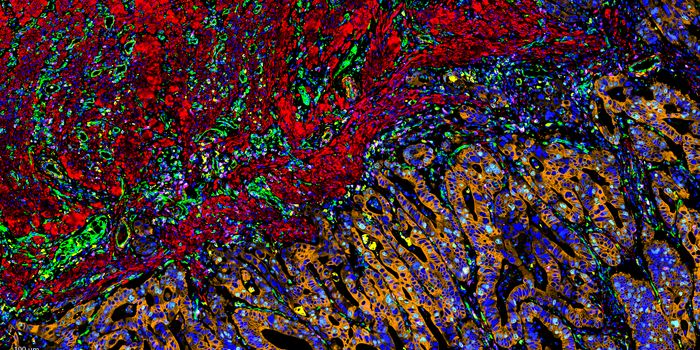Friend or Foe? How the Immune System Chooses
The immune system has to be able to differentiate between the organisms in our microbiome, which can be helpful and even essential, and the pathogenic microbes that invade our body to cause infection and illness. Investigators have not known whether regular exposure was creating the tolerance, if the immune system was identifying and then opting to ignore microbes in the gut, or just never reacting to them at all. Scientists have now created a computational tool to identify sequences in microbial genes that generate antigens that are recognized and tolerated by the immune system. The findings gave been reported in Immunity.
The algorithm used in this study is called the Bacteria Originated T cell Antigen (BOTA) predictor. It was created in 2018 to study vast amounts of microbial sequence data to find the genes that are likely responsible for encoding microbial antigens. It was reapplied to the human gut microbiome for this study, as hBOTA.
This analysis revealed about 60 antigens mostly made of bacterial fragments, in the microbiomes of people. Further work showed that T cells were recognizing the fragments, but no inflammatory response was initiated after the encounter.
One antigen in particular called SusC was identified in this study. The researchers exposed immune T cells isolated from healthy volunteers to SusC; the T cells were found to tolerate the SusC antigen, regardless of which healthy person the T cells had been collected from. But when T cells gathered from Crohn's disease patients were exposed to SusC, the T cells reacted very differently. Crohn's disease is an inflammatory bowel disorder that causes abdominal pain and cramping.
In healthy people, T cells generate the anti-inflammatory molecule IL-10 when they encounter SusC. But in Crohn's patients, T cells react to SusC by triggering the production of an inflammatory cytokine called IL-17.
"For people experiencing a flare in Crohn's disease, their T cells recognize this microbiome antigen, but instead of exhibiting tolerance to it, they have a inflammatory response towards it," explained study co-author Daniel Graham, the director of functional genomics at the Infectious Disease and Microbiome Program (IDMP) at the Broad Institute of MIT and Harvard.
The SusC antigen is crucial to the survival of many microbes, as it helps move nutrients around bacterial cells. The sheer abundance of SusC may be part of why it's tolerated, suggested the researchers.
The researchers noted that it may be possible to monitor disease in patients, and predict when flare-ups will occur by observing or measuring the relationship between T cells and SusC. This relationship may also open up new treatment options for people with inflammatory gut disorders.
"We've shown in this study that the T cell response to the microbiome is very dynamic," Graham said. "If we can understand the mechanisms underlying these processes, maybe we can design targeted therapeutics to intervene and maintain tolerance to the microbiome."
Sources: Broad Institute of MIT and Harvard, Immunity









